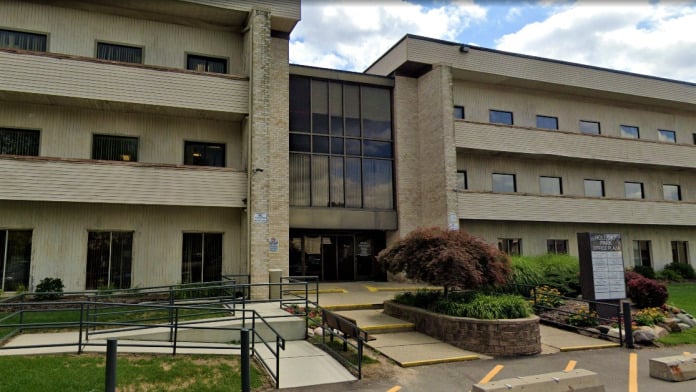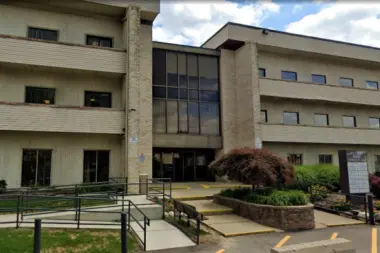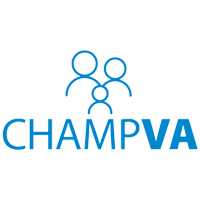What I like about them is their no discrimination policy, they are willing to help anyone, even if they don't have insurance, which I think is very helpful for many people. The counseling they give you is designed to suit your needs and the support they provide you makes eve ...
About Hegira Programs, Inc.
Located in Westland, Michigan is Hegira Health, Inc. Hegira House. This is a facility that offers outpatient services and assertive community treatment (ACT) for adults struggling with their mental health or who have a co-occurring substance abuse disorder.
This facility is equipped to work with adults who have a serious mental illness, as well as young adults who are experiencing their first episode of psychosis. There are also programs here for seniors and those who have been court ordered to receive treatment.
All of their services are offered in an outpatient setting. However, if you need more specialized care, you can get referred to one of their other locations, where you’ll find residential care, withdrawal support, medication support, and other services.
They accept Medicaid and Medicare here, as well as policies from most major insurance providers.
Comprehensive Addiction Treatment
The substance abuse programming offered through Hegira Health is comprehensive. There are programs here if you’re struggling with opioid use. Along with withdrawal management, you’ll also be supported through medication assisted treatment to help you manage ongoing cravings. This will allow you to focus on your counseling and therapy services.
Employment support services and access to housing support are also available here.
Court Ordered Programming
Their court ordered services can help you work toward lost driving privileges brought on by a DUI or related offense. These services are not covered under insurance, but there are flat, affordable fees for each program.
Peer Recovery Support
You’ll get to work with other individuals who have gone through similar experiences to what you’re working through. By working with these peer support specialists, you’ll have someone you can relate to, build trust in, and find supportive care with when you experience obstacles in your recovery.
Latest Reviews
Rehab Score
Gallery


Accepted Insurance

Other Forms of Payment
Private insurance refers to any kind of healthcare coverage that isn't from the state or federal government. This includes individual and family plans offered by an employer or purchased from the Insurance Marketplace. Every plan will have different requirements and out of pocket costs so be sure to get the full details before you start treatment.
Self-pay involves paying for treatment out of your own pocket. You can use savings or credit, get a personal loan, or receive help from family and friends to fund your treatment. If you don't have insurance or your insurance plan doesn't cover a specific program, self-pay can help ensure you still get the care you need.
Sliding scale payments are based on a client's income and family size. The goal is to make treatment affordable to everyone. By taking these factors into account, addiction recovery care providers help ensure that your treatment does not become a financial burden to you or your family, eliminating one barrier to care.
Medicare is a federal program that provides health insurance for those 65 and older. It also serves people under 65 with chronic and disabling health challenges. To use Medicare for addiction treatment you need to find a program that accepts Medicare and is in network with your plan. Out of pocket costs and preauthorization requirements vary, so always check with your provider.
Medicaid is a state based program that helps lower-income individuals and families pay for healthcare. Medicaid covers addiction treatment so those enrolled can use their coverage to pay for rehab. When a program accepts Medicaid the client often pays very little or nothing out of their own pocket.
Military members, veterans, and eligible dependents have access to specific insurance programs that help them get the care they need. TRICARE and VA insurance can help you access low cost or no cost addiction and mental health treatment. Programs that accept military insurance often have targeted treatment focused on the unique challenges military members, veterans, and their families face.
Addiction Treatments
Levels of Care
Hegira's Mental Health and Substance Abuse Outpatient Treatment Programs offer a variety of services designed to meet the unique needs of each child, adult or family. Services include assessment and evaluation, referral to external resources, crisis resolution, short-term traditional treatment, and long-term management of chronic conditions.
Residential treatment programs are those that offer housing and meals in addition to substance abuse treatment. Rehab facilities that offer residential treatment allow patients to focus solely on recovery, in an environment totally separate from their lives. Some rehab centers specialize in short-term residential treatment (a few days to a week or two), while others solely provide treatment on a long-term basis (several weeks to months). Some offer both, and tailor treatment to the patient's individual requirements.
Clients receiving care in an intensive outpatient program (IOP) typically have completed inpatient treatment, but some choose to enroll in IOP immediately following detox. Intensive outpatient rehabs offer high-level support for clients in early recovery and those at an increased risk of relapse. Most programs provide between nine and 20 hours of treatment per week, with services ranging from addiction counseling to recovery education to medication assisted treatment (MAT). Holistic therapies, such as acupuncture, are common.
Clients engaged in a rehab aftercare program have already completed high-level treatment and have begun to develop essential recovery skills. Rehab aftercare services are designed to support clients' sustained sobriety as they reintegrate into their home, workplace, and community. Case managers, care teams, and clients design the customized service portfolio that will best support the client's long-term sobriety. Clients may receive peer coaching, 12 step program induction, vocational training, and relapse prevention services.
12 step programs are typically community-based and peer-led, though many rehabs base their treatment models on this approach. Participants engage in regular 12 step meetings, which are anonymous, free, and accessible multiple times a day, 365 days a year in most communities. Participants are also mentored by self-selected sponsors who support them as they work through the 12 steps of recovery, which include addressing the causes of the disease, taking personal responsibility, and relinquishing control.
Sober living homes in Michigan act as a bridge between an intensive level of care and the freedom of independent living. The primary rule in every sober living home is to stay sober. If a resident breaks this rule, they can be evicted. However, this environment is designed to prevent relapse, with mutual support, 12-step meetings, a structured schedule, and drug screenings.
Intervention services helps family or friends of addicts stage an intervention, which is a meeting in which loved ones share their concerns and attempt to get an addict into treatment. Professional intervention specialists can help loved ones organize, gather, and communicate with an addict. They can guide intervention participants in describing the damage the addict's behavior is causing and that outside help is necessary to address the addiction. The ideal outcome of an intervention is for the addict to go to rehab and get the help they need.
While many people know it as "day treatment", a partial hospitalization program (PHP) offers treatment during the day and allows you to live at home. PHP treatment typically requires a commitment of at least 20 hours of treatment every week, with a program duration that spans approximately 90 days. While commuting is necessary, some programs offer telehealth options. PHP treatment plans usually include relapse prevention, medication management, and behavioral therapy.
24-hour clinical care in Michigan is essential for certain phases of recovery treatment. During detox, many physical ailments related to the detox process can be lethal if not treated. Having medical staff available at all times provides the proper care for safe detox. Medications and other treatment can also make the process much more comfortable and bearable.
During a medically supervised detox, addictive substances are removed from your body while under the 24/7 supervision of medical professionals in an inpatient environment. This is the safest way to wean your body off of addictive substances, since quitting alcohol or certain drugs (like opioids or benzodiazepines) can be dangerous if done on your own. The program typically lasts around 5-7 days, but is highly individualized depending on your needs.
Treatments
The goal of treatment for alcoholism is abstinence. Those with poor social support, poor motivation, or psychiatric disorders tend to relapse within a few years of treatment. For these people, success is measured by longer periods of abstinence, reduced use of alcohol, better health, and improved social functioning. Recovery and Maintenance are usually based on 12 step programs and AA meetings.
Drug rehab in Michigan provides personalized treatment to help individuals break this cycle and regain control of their lives. Treatment methods are used in various levels of care, including inpatient rehab, partial hospitalization programs, intensive outpatient programs, and standard outpatient treatment.
Many of those suffering from addiction also suffer from mental or emotional illnesses like schizophrenia, bipolar disorder, depression, or anxiety disorders. Rehab and other substance abuse facilities treating those with a dual diagnosis or co-occurring disorder administer psychiatric treatment to address the person's mental health issue in addition to drug and alcohol rehabilitation.
A combined mental health and substance abuse rehab has the staff and resources available to handle individuals with both mental health and substance abuse issues. It can be challenging to determine where a specific symptom stems from (a mental health issue or an issue related to substance abuse), so mental health and substance abuse professionals are helpful in detangling symptoms and keeping treatment on track.
Opioid rehabs specialize in supporting those recovering from opioid addiction. They treat those suffering from addiction to illegal opioids like heroin, as well as prescription drugs like oxycodone. These centers typically combine both physical as well as mental and emotional support to help stop addiction. Physical support often includes medical detox and subsequent medical support (including medication), and mental support includes in-depth therapy to address the underlying causes of addiction.
Programs
Adult rehab programs include therapies tailored to each client's specific needs, goals, and recovery progress. They are tailored to the specific challenges adult clients may face, including family and work pressures and commitments. From inpatient and residential treatment to various levels of outpatient services, there are many options available. Some facilities also help adults work through co-occurring conditions, like anxiety, that can accompany addiction.
Young adulthood can be an exciting, yet difficult, time of transition. Individuals in their late teens to mid-20s face unique stressors related to school, jobs, families, and social circles, which can lead to a rise in substance use. Rehab centers with dedicated young adult programs will include activities and amenities that cater to this age group, with an emphasis on specialized counseling, peer socialization, and ongoing aftercare.
Recovery is most successful when clients feel accepted and validated by their peers and treatment providers. Facilities that offer LGBTQ-inclusive programming are committed to creating a safe space where everyone can grow and recover without fear of judgment or discrimination. They will have dedicated policies in place to create a safe and supportive environment that fosters free expression.
Serving in the military is both mentally and physically challenging, and can result in trauma that persists even after combat ends. Military programs are tailored to the specific and often complex needs of active duty personnel, veterans, and military families. Clients often access these programs through the U.S. Department of Veterans Affairs (VA).
Clinical Services
Cognitive Behavioral Therapy (CBT) is a therapy modality that focuses on the relationship between one's thoughts, feelings, and behaviors. It is used to establish and allow for healthy responses to thoughts and feelings (instead of unhealthy responses, like using drugs or alcohol). CBT has been proven effective for recovering addicts of all kinds, and is used to strengthen a patient's own self-awareness and ability to self-regulate. CBT allows individuals to monitor their own emotional state, become more adept at communicating with others, and manage stress without needing to engage in substance abuse.
Addiction often involves intense situations and emotions. Dialectical behavior therapy helps you understand and regulate your emotions and better manage the situations that evoke those feelings. You'll receive mindfulness training and stress management training to cope more effectively with difficult emotions.
Group therapy is any therapeutic work that happens in a group (not one-on-one). There are a number of different group therapy modalities, including support groups, experiential therapy, psycho-education, and more. Group therapy involves treatment as well as processing interaction between group members.
In individual therapy, a patient meets one-on-one with a trained psychologist or counselor. Therapy is a pivotal part of effective substance abuse treatment, as it often covers root causes of addiction, including challenges faced by the patient in their social, family, and work/school life.
Motivational Interviewing (MI) is a clinical approach to helping people with substance abuse issues and other conditions shift behavior in positive ways. It is more goal-oriented than traditional psychotherapy, as MI counselors directly attempt to get clients to consider making behavioral change (rather than wait for them to come to conclusions themselves). Its primary purpose is to resolve ambivalence and help clients become able to make healthy choices freely.
Trauma therapy addresses traumatic incidents from a client's past that are likely affecting their present-day experience. Trauma is often one of the primary triggers and potential causes of addiction, and can stem from child sexual abuse, domestic violence, having a parent with a mental illness, losing one or both parents at a young age, teenage or adult sexual assault, or any number of other factors. The purpose of trauma therapy is to allow a patient to process trauma and move through and past it, with the help of trained and compassionate mental health professionals.
Whether a marriage or other committed relationship, an intimate partnership is one of the most important aspects of a person's life. Drug and alcohol addiction affects both members of a couple in deep and meaningful ways, as does rehab and recovery. Couples therapy and other couples-focused treatment programs are significant parts of exploring triggers of addiction, as well as learning how to build healthy patterns to support ongoing sobriety.
HPI provides strength-based, family oriented services for children, adolescents and young adults, ages 0 through 21, with serious emotional disturbances at our children's specialty clinic in Westland. This clinic offers a variety of services designed to meet the unique needs of children and their families/caregivers who are challenged with the management of a range of serious emotional disturbances of childhood and adolescents. Levels of care include traditional outpatient, clinic and community-based case management, home-based services and wraparound. Treatment teams work together with each child and family to ensure that assessments and treatment approaches are person-centered, strength-based, comprehensive and focused on maximizing each individual's potential.
Life skills trainings involve all the skills a person must have in order to function successfully in the world. These include time management, career guidance, money management, and effective communication. Truly successful addiction recovery is based on the ability to not only live substance-free, but to thrive. Life skills teaches the practical necessities of functioning in society, which sets clients up for success in life, and therefore sobriety.
Amenities
-
Residential Setting
-
Private Setting
Staff & Accreditations
Staff
Carol Zuniga
CEO
Edward L. Forry
President
Andrew Gilroy
CFO
Michael Wunder
CIO
Susan Kozak
COO
Todd Harrison
CHR
Accreditations

The Joint Commission, formerly known as JCAHO, is a nonprofit organization that accredits rehab organizations and programs. Founded in 1951, the Joint Commision's mission is to improve the quality of patient care and demonstrating the quality of patient care.
Joint Commission Accreditation: Yes
Contact Information
8623 North Wayne Road
Ste 220
Westland, MI 48185










